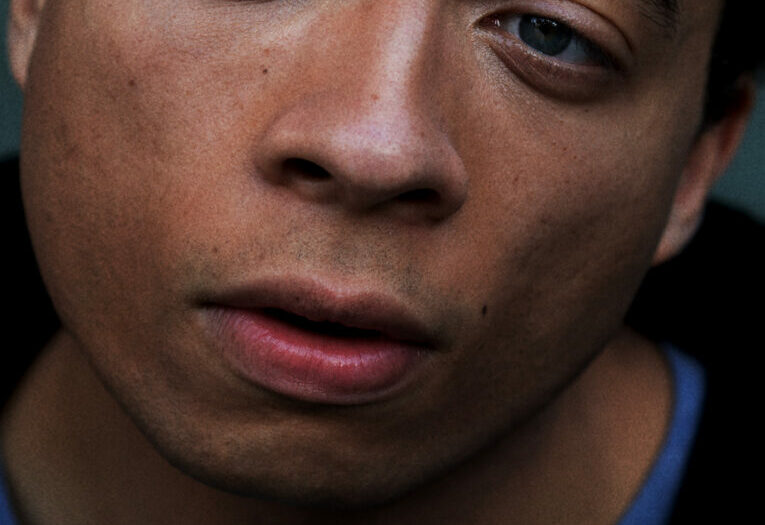From ‘CLOSE UP CULTURE’
Written and directed by Phil Dunn, The Stupid Boy tells the parallel narrative of Michael, a 16 year-old neurodivergent boy unable to recognise hatred and bullying, and Stephen, a broken man full of repressed rage following a history of abuse and loss. These characters’ journeys are brought together in a heart-stopping finale when their narratives cross paths.
Phil joins us on Close-Up Culture to chat about the OSCAR qualified short film.
What inspired this story?
Taking the tube (London underground train) not long after the 2005 London terrorist attacks. – I was looking around and imagining what would happen if a terrorist had a bomb on the train. What would I do? More than likely, like anyone, I would run away in terror. But then I had this thought: what about hugging the bomber – what would happen then? That thought really freaked me out, but it also fascinated me and I couldn’t stop thinking about it, and all the possible ensuing scenarios. It wasn’t for a long time that I realised that this could be the idea for a film.
Was there a significant reasoning behind using Brixton Market as the location?
Yes definitely a few reasons. Firstly, shooting on the underground was a no go – the last people that did that were James Bond apparently, and we didn’t have that budget! Once that was clear, I quickly began thinking of Brixton. Having lived there for 12 years at that point, I knew it is such a brilliant, creative, vibey melting pot, where people from so many different cultures and social backgrounds mix – and I love that. For a white supremacist though, that would be seen as a bad thing, so it worked as a credible target. Also, I used to walk through Brixton Village market every day to get to a co-working space on the other side, so I knew the space well and some of the stall owners. And it had that similar enclosed feel of a tube train, but with lots going on and lots of colour, so really it was the perfect backdrop visually, socially and culturally for that part of the story.

What key theme or idea do you want audiences to take away from this?
I think it is important that they watch it their own way, and take from it what comes to them, but for me, the film is about daring to imagine how powerful kindness and love can be in more extreme situations. Could this happen in the real world? Well, it certainly won’t if we don’t dare to imagine it..!
What was the writing for this short like? Did the story evolve much from the original idea or was it pretty much thought out from the get go?
It was a long, iterative process! Thankfully, I had lockdown to help keep other distractions at bay..! I tried a few different endings, a few different characters, a couple of different titles, and each time just tried to see how that helped look at this core, central idea that I’d had on the tube. I did about 18 drafts and got feedback from friends, industry people and script competitions. It won a top 10 finalist award from the International Screenwriting Association, so that helped encourage me. But also when some readers came back with tears in their eyes – that’s when I knew it was starting to hit the right notes.
In the family the mother comes across as the ‘Realist’ of them, concerned for how Michael will be perceived by society; what is the significance of her character?
That’s a great way of putting it. She is definitely there to be the voice of reason, and also to show how sometimes, our reasoning can keep us daring to see things differently.

Michael is seen creating a homemade camera, what went behind choosing this to be part of the story line?
A few things really, but mainly it was a great way of depicting how Michael sees the world differently, and also showing how he is curious and creative (and indeed not ‘stupid’ at all) right from the start. Camera Obscuras are kind of like magic – the fact that they actually work is mind-boggling! And when you look through the Camera Obscura, the image is upside down. For Michael, the world outside seems to not make sense, and he is trying to understand it. I think his gift is that he sees something about the world that we don’t – it IS upside down. People shouldn’t ever be blowing themselves up, for any cause, or any religion. That doesn’t make sense. Then he latches onto this idea about Love, and it resonates with him – it makes sense. So the camera represents him beginning to grapple with the world and this idea, and what he could do with it..
What is next for you?
I have a drama/comedy feature that I want to get made called N/A which is about addiction and belonging. And I have another short ready to go, called FIRE LILY, which is a drama based on a poem I wrote after George Floyd’s murder, starring an amazing Juilliard School dancer from Cleveland called Nehemiah Spencer. It’s come together off the back of The Stupid Boy’s festival run, and is looking pretty exciting. Anyone looking to invest, let me know!
Where can people keep in touch with your work?
Via my website: https://www.phildunn.uk or on Instagram @phildcdunn
https://closeupculture.com/2023/09/25/director-phil-dunn-on-the-stupid-boy/

